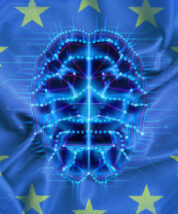Overview
These technology trends are shaping a future in which tech plays an increasingly central role in our lives transforming how we work, communicate, entertain ourselves, and even make decisions.
With the rapid evolution of digital transformation, industrial companies are currently facing a major challenge. They must not only adapt their operational processes and customer interactions to integrate emerging technologies but also ensure they remain competitive in the market.
Overview of 2025 technology trends
The 2025 Technology Trends Report published by McKinsey [1] highlights 13 major technological advancements that are having a significant impact across various industries, particularly in manufacturing. These developments are gradually redefining work and production methods by introducing innovative approaches and technologies.
Artificial Intelligence (AI) stands out among emerging technologies as a key driving force. It amplifies the potential of other innovations and helps transform the industry to become more autonomous, flexible, and focused on enhancing customer experience.
Thanks to its large-scale data processing and analysis capabilities, AI plays a fundamental role in enabling a fully integrated industrial transformation. It is taking on an increasingly important place in company strategies.
AI is no longer seen as a standalone technology but as a core enabler of applied innovation within organizations.
According to McKinsey, AI plays a crucial role in bringing together various technologies, which translates into improved industrial processes through intelligent automation. It also allows the design of robots with real-time learning and adaptation capabilities, opening new frontiers across industries.
Emerging technologies driving innovation
Emerging technologies are transforming traditional practices. Key focus areas include:
Emerging technologies :
Generative AI and artificial intelligence:
AI is revolutionizing digital marketing by analyzing Big Data to optimize campaigns and personalize the customer experience. AI acts as a catalyst, turning data into actionable opportunities.
Edge computing:
Edge computing is a cloud optimization method that processes data near its source, at the network edge.
By analyzing data locally, it reduces bandwidth between sensors and data centers. This approach often relies on devices not constantly connected to the network such as laptops, smartphones, tablets, or sensors.
Edge computing eliminates unnecessary transmissions to data centers or the cloud, ensuring greater speed and responsiveness. It includes techniques like wireless sensor networks, mobile data acquisition, on-device signature analysis, peer-to-peer cooperative processing, distributed data storage, remote cloud services, and augmented reality.
Digital marketing technologies:
Digital marketing uses digital channels (web, social media, emails, apps) to promote products and services. Key techniques include SEO, content marketing, PPC advertising, email campaigns, and data analytics.
Understanding data, optimizing campaigns, and effectively engaging target audiences are crucial for achieving business goals.
Core methods and channels
- SEO: Enhances website visibility on search engines to increase organic traffic.
- Content Marketing: Creates and distributes relevant content to attract and retain audiences.
- Social Media Marketing: Builds brand awareness and engages users via social platforms.
- PPC Advertising: Companies pay per click on their online ads.
- Email Marketing: Sends personalized messages to promote products, services, or offers.
- Affiliate Marketing: Promotes other companies’ products in exchange for sales commissions.
- Influencer Marketing: Leverages influencers to promote products or services.
Technologies and tools
- Data Analytics and Management: Essential tools for campaign performance tracking and informed decision-making.
- Marketing Automation: Improves campaign efficiency by automating repetitive tasks.
- Strong Web Design: Critical for capturing and holding visitor attention.
- Platforms like Google Search Console: Help monitor and optimize SEO.
- The Metaverse and Digital Twins: Enable new brand-customer interactions.
Their role in creating new business models:
Emerging technologies support the creation of new business models tailored to today’s digital landscape:
- Personalization and ROI: Data-driven multichannel campaigns improve customer responsiveness and loyalty, opening the way to experience-based models.
- Agility and Adaptability: Relying on precise audits, KPI tracking, and behavioral analysis to adjust strategies in real-time a flexible business model built on tech responsiveness.
- Data Serving Business Needs: Cross-channel data enables companies to innovate in offering and marketing , predictive digital tools for customer needs and improved ad targeting.
Subscribe to our newsletter and gain access to strategic insights, exclusive analyses, and expert tips to enhance your online presence.
Artificial intelligence as a transformation engine
Focus on artificial intelligence
Generative AI can create original content, while predictive AI anticipates trends and behaviors revolutionizing decision-making and innovation.
According to McKinsey's 2025 report, AI adoption is accelerating globally, with over 50% of companies having already integrated AI into critical processes a number that’s growing quickly each year.
Intelligent automation isn’t just about reducing tedious tasks it opens the door to smoother human-machine collaboration, with AI assisting in analysis, creativity, and strategic management.
In this context, the question is no longer if businesses should adopt AI, but how to extract lasting value from it while integrating ethics, data security, and smart governance.
Real-World Applications Across Industries
AI's impact is tangible across sectors like healthcare, manufacturing, finance, and retail each reinventing their models through this technology.
- Healthcare: AI accelerates diagnosis, especially via medical image analysis sometimes outperforming human experts while reducing treatment delays.
McKinsey estimates AI could generate up to $100 billion annually in diagnostics and care management by 2030. - Manufacturing: Predictive AI improves equipment maintenance, boosting machine uptime by 20 - 0%, saving millions through reduced unplanned outages.
- Finance: AI algorithms personalize customer experiences, detect fraud and risks in real-time helping reduce losses and improve satisfaction.
- Retail: Smart virtual assistants and predictive analytics are transforming the shopping experience, with many consumers now preferring personalized offers leading to revenue growth.
These real-world changes show that AI is no longer futuristic it’s a present-day force redefining how companies deliver value with both humanity and efficiency.
Digital transformation: from experimentation to industrialization
How companies scale from pilot projects to full Digital transformation
Shifting from isolated digital labs to large-scale transformation is a major challenge for most businesses. It’s no longer a side project or isolated initiative it’s a strategic imperative that requires a full organizational rethink.
According to McKinsey:” nearly 70% of companies that began with standalone automation or AI projects are now moving into an industrialization phase.”
This shift involves strong leadership commitment, recognizing that digital transformation is no longer optional but mission-critical.
Example:
Société Générale [2] illustrates this transformation well: after pilot phases, the bank launched a global program, “Digital for All,” incorporating collaborative tools, new remote work practices, ongoing training, and employee-driven innovation.
The Result:
Stronger cross-functional collaboration, a reinforced digital culture, and measurable operational efficiency gains. Similarly, Air France [3] centralized its digital initiatives into a dedicated hub that fully leverages data to deliver a seamless, personalized, digital customer experience across platforms.
This transition requires agile methodologies, rapid iteration, and above all the desire to build a comprehensive digital ecosystem. The company becomes a learning organization capable of turning experiments into standards, scaling innovation, and reacting swiftly to market shifts.
The importance of integrating Data, processes, and talent
Successful industrialization hinges on perfectly orchestrating data, processes, and human talent. This trio creates the leverage necessary for effective, sustainable digital transformation. Data is at the core.
McKinsey reports that companies with integrated Data Platforms where every piece of data feeds into an augmented decision-making cyclesee 30% higher productivity than their peers.
Data powers real-time, precise control of operations, marketing campaigns, production, and services.
But data without the right processes remains ineffective. It’s essential to rethink workflows, automate repetitive tasks, break down silos, and establish a culture of continuous improvement.
Example:
Nike [4] transformed its supply chain by integrating digital processes based on customer data. This led to an 80% increase in online sales during the pandemic through better responsiveness and offer personalization.
Finally, talent is the human engine driving this momentum.
Adopting new technologies requires skilled profiles as well as the ability to guide cultural and organizational change.
65% of companies that succeed in digital transformation invest heavily in continuous training, skill-building, and cross-functional teams that drive daily innovation.
Success depends on strong leadership and experienced teams that blend digital expertise with strategic vision.
Thus, data, processes, and talent must work in harmony this synergy is the foundation for moving from theory to industrial-scale execution. It drives measurable business impact, better customer experience, and increased agility in a fast-changing economy.
Business outlook and impact of 2025 technology trends
Technological innovations are profoundly reshaping the way companies gain agility and enhance performance in their markets. Here's how these developments are actively shaping their competitiveness today.
How these advancements influence Business competitiveness and performance
The year 2025 marks a decisive turning point, where emerging technologies particularly artificial intelligence, hybrid cloud, and advanced automation are becoming essential levers to drive competitiveness and boost business performance.
According to a report by SEIDOR [5], over 65% of companies that have invested in generative AI have reported significant increases in productivity, thanks to optimized workflows and improved real-time decision-making based on data analysis.
These technologies are making companies more agile able to continuously adapt their offerings and more innovative overall.
Governance and regulatory challenges
This technological revolution inevitably brings with it major governance and regulatory challenges.
The European AI Act, designed to regulate the use of artificial intelligence, introduces a strict framework aimed at ensuring transparency, fairness, safety, and respect for fundamental rights.
This regulation, which will become fully enforceable starting in 2025, requires companies to rethink their approach to AI development and deployment by implementing robust control and audit mechanisms.
According to Deloitte, most organizations are already working to adapt their internal processes to comply with these new requirements, prompting a deep transformation of digital strategies that extends beyond just technology implementation.
In addition, data sovereignty is becoming a vital strategic issue. The increasing number of national regulations highlights the need for companies to take control of their data infrastructure and governance especially in today’s tense geopolitical climate.
KONICA MINOLTA [6] emphasizes that data management must be approached from the perspectives of ethics, protection, and localization, with a growing reliance on hybrid and local infrastructures to ensure both performance and compliance.
This mastery of data lies at the heart of trust between companies, clients, and partners an intangible yet critical asset in today’s economic battlefield.
Companies that successfully address these governance challenges will be better positioned to secure their innovations, accelerate their technology projects, and create long-term competitive advantages.
This dual dynamic technological power within a responsible framework is the new frontier for business success looking toward 2025.
Conclusion
The year 2025 is poised to become a pivotal moment in technological advancement. Progress in artificial intelligence, automation, the Industrial Internet of Things (IIoT), and digital ecosystems is profoundly transforming how companies interact with their clients especially in the industrial sector.
Sources:
1. McKinsey
2. Société Générale
3. Air France
4. Nike
5. Seidor
6. Konica Minolta







